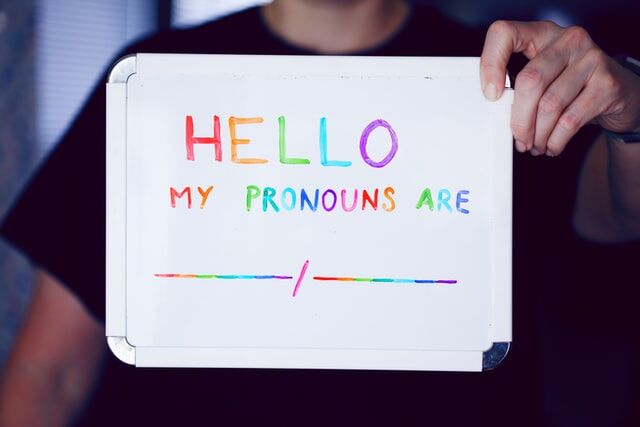New Senate bill could negatively impact queer youth
LGBTQIA+ youth are encouraged to voice their identity, but they may be negatively impacted by Senate File 80.
February 3, 2021
Many students will reflect that in a noisy high school classroom, one student is worrying about the test next period, another student worries about the upcoming timed mile and the student next to them worries about hearing their dead name during roll call.
Queer students can have profoundly different experiences in middle and high school, including struggles with their identity. LGBTQIA+ students experience more marginalization and require additional support compared to their straight, cisgender peers. A new bill, Senate File 80, could perpetuate this marginalization.
Senate File 80 was introduced to the Iowa Legislature by Sen. Amy Sinclair on Jan. 20. The bill regarding pronoun use in Iowa school districts states if a school employee or a school curriculum asks a student to identify which preferred pronoun they would like to be called, the parents or guardians are notified.
“The school district shall provide written notification of such action to the parent or guardian of the student at least one week before such action occurs,” the bill states.
Considering the future of this bill and LGBTQIA+ youth, LGBTQIA+ students, who are now young adults, reflect on their grade school experiences. Morgan Duncan, a senior at Sioux City North High School, remembers his struggles with faculty respecting their pronouns.
“Every teacher knows, and they all ignore it or forget,” Duncan said. “I think I have one teacher who actively tries.”
Lillian Uhl, a senior at Iowa State in physics, also struggled with high school administration during her transition. Her teachers no longer used her dead name, but they did not fully acknowledge her identity.
“When I came out, there was never any specification for all of the teachers to use my preferred pronouns compared to getting them to use my preferred name,” Uhl said.
Maxx Flumerfelt, an Iowa State junior majoring in animal science, had to keep his dead name while his preferred name was labeled a “nickname.” Despite this, Flumerfelt had a positive experience in school.
“There could have been a lot less hassle,” Flumerfelt said. “I don’t think it should be made to be a crazy fiasco. A lot of times, school was where I was accepted the most by my friends and teachers.”
School is where children spend the majority of their days growing up, discovering their interests and contemplating their identity. Many students have had experiences in school similar to Flumerfelt’s, but many fail to consider the student’s home environment. When asked about the potential effects of Senate File 80, Duncan acknowledged that some students’ home life may become endangered.
“Before the school notifies parents, they need to make sure it’s a safe situation,” Duncan said. “I have friends where if their parents knew XYZ about them, they wouldn’t be able to live at home.”
A more mindful process, Duncan suggests, may have been helpful for students like Uhl, where her home was not always supportive of her coming out. Uhl graduated high school in 2018 before the specification of pronouns was more common, and they notified her family of her name change.
“My mom already knew, but they also had to notify my father,” Uhl said. “My dad also knew at this point, but he was not supportive at all. I was very anxious about that as I began the official transition at school.”
Students explained that whether the bill is passed, LGBTQIA+ students should not feel afraid or ashamed of their identity. Flumerfelt came out five years ago and reflected on what he would tell his younger self.
“Be more brave about it,” Flumerfelt said. “Be more willing to correct people when they mess things up. Don’t be so willing to accept when people misgender you or use the wrong pronouns.”







